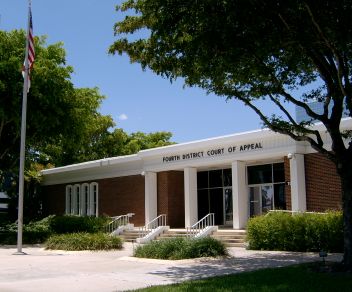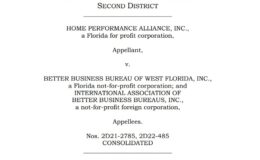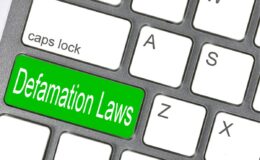Fourth DCA: Internet Review of Lawyer Is Libel Per Se
- By : Cbh
- Category : 1st Amendment, Defamation

Posting an online review of a lawyer’s services which include false claims that the lawyer lied about attorney fees and falsified a contract is libel per se, ruled the Florida Fourth District Court of Appeal on January 6, 2016.
Even though the parties had settled their case and at least one appellant sought to withdraw the appeal, the Court nonetheless proceeded with its ruling since the “application of free speech protections to reviews of professional services posted on the internet… presents a scenario that will likely recur and the public will benefit from an opinion on the matter.”
In Copia Blake and Peter Birzon v. Ann-Marie Giustibelli, the appellee-lawyer had represented appellant Blake in her divorce from the other appellant Birzon. An attorney-client disagreement arose. At some point, both appellants apparently posted reviews on various internet sites (a twist since the appellants / former spouses were, at one point, in a divorce action but banded together to write a negative review of the wife’s prior counsel). Of note, my searches suggest these reviews may have been removed. The appellants’ reviews are, at least in part, quoted in the opinion; they involve several paragraphs and include assertions that the appellee had overbilled and faked a contract. According to the opinion, both of those claims were proven untrue. As the footnote confirms, that is the hallmark distinction between an assertion of fact vs. someone’s opinion. The appellee-lawyer sued both appellants and won at trial — including an award of punitive damages.
As the opinion is written, it appears evident that, within the lengthy review(s), the focal issue for the court was the alleged faked contract and overbilling. The opinion does not dissect the reviews to address each statement and whether it is, or is not, libel. The opinion includes a discussion of libel per se, where there are presumptive damages based upon the nature of the libel. That discussion, presumably, is what the Court felt would benefit the public by releasing an opinion after the case was settled.
At least in the opinion, the appellants’ sole argument appears to be that they could not be held liable since libel per se did not exist after 1974. This is weak and, not surprisingly, the Court held that this was not the law.
It should be noted that the appellants appear not to be represented by counsel and, from the docket, it further appears that they did not file a Reply brief on the merits since they filed a Motion to Withdraw Appeal (there is a “Response” on the docket but the notes section references the Motion to Withdraw). You can review the docket here by searching for 4D14-3231.
UPDATE: Edited Feb 9, 2016.
Photo credit: Bushell


